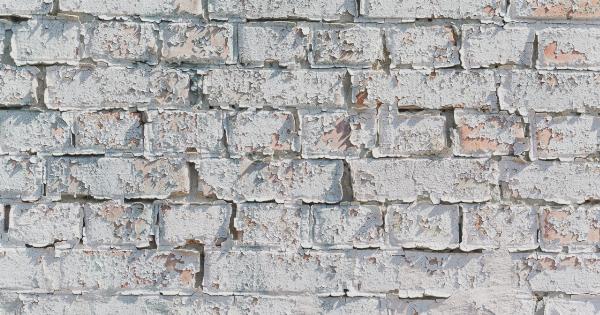There’s a common myth that when you swallow chewing gum, it stays in your digestive system for years, causing blockages. But is this true? Here’s what science has to say:.
Chewing gum composition
Chewing gum is made up of a combination of ingredients including sugar, syrup, and natural or artificial flavors.
One of the main components of chewing gum is gum base, which is a mixture of different synthetic rubbers that provide the gum’s chewy texture.
When you chew gum, it starts to break down and release saliva. After a while, the gum loses its flavor and texture, and most people spit it out into a bin or onto the street. But what happens if you accidentally swallow it?.
Can you digest chewing gum?
The short answer is no – you can’t digest chewing gum. Your digestive system is designed to break down food into nutrients, absorb them into your bloodstream, and eliminate any waste products.
However, chewing gum is made up of a mixture of synthetic materials that your body can’t break down.
When you swallow chewing gum, it passes through your esophagus and into your stomach. While your stomach can digest most of the food you eat, it can’t break down the synthetic materials in chewing gum.
Instead, the gum moves through your digestive system intact.
Does chewing gum stick to your stomach?
Another common myth is that chewing gum sticks to the walls of your stomach, causing blockages or ulcers. However, this isn’t the case.
The lining of your stomach is coated with a layer of mucus, which provides a slippery surface that prevents things from getting stuck. While it’s possible for small objects like coins or buttons to get lodged in your digestive system, chewing gum won’t stick to your stomach.
Can chewing gum cause intestinal blockages?
While chewing gum won’t stick to your stomach, it can potentially cause blockages in your intestines. The main reason for this is that gum doesn’t get broken down in your digestive system, so it can form large clumps that block your intestines.
This is more likely to happen if you swallow a large amount of gum in a short period of time. If you regularly swallow small amounts of gum over a long period, the gum will eventually pass through your digestive system and be excreted in your stool.
What happens if you get an intestinal blockage?
An intestinal blockage can be a serious medical condition that requires immediate attention. Symptoms include severe abdominal pain, cramping, bloating, constipation or diarrhea, vomiting, and an inability to pass gas or stool.
If you suspect that you have an intestinal blockage, it’s important to seek medical attention right away.
Your doctor will assess the severity of the blockage and may recommend treatment options such as medication to help break up the blockage or surgery to remove it.
Preventing intestinal blockages
The easiest way to prevent intestinal blockages from chewing gum is to avoid swallowing it altogether. If you chew gum regularly, make sure to dispose of it properly by wrapping it in a tissue or napkin and throwing it in a trash can.
In general, it’s a good idea to avoid swallowing any non-food items, as they can potentially cause blockages or other digestive problems.
The bottom line
Swallowing chewing gum won’t stick to the walls of your stomach. However, if you swallow large amounts of gum in a short period, it can potentially form clumps that block your intestines.
While this is a rare occurrence, it’s important to seek medical attention if you experience symptoms of an intestinal blockage.




























